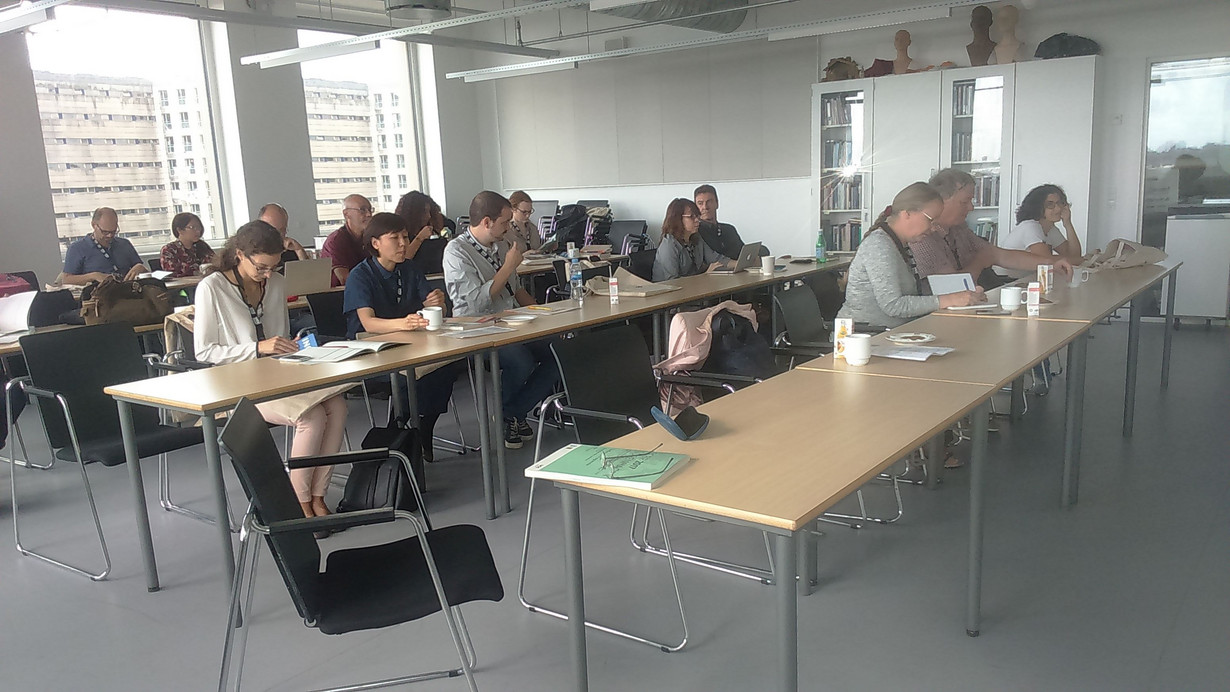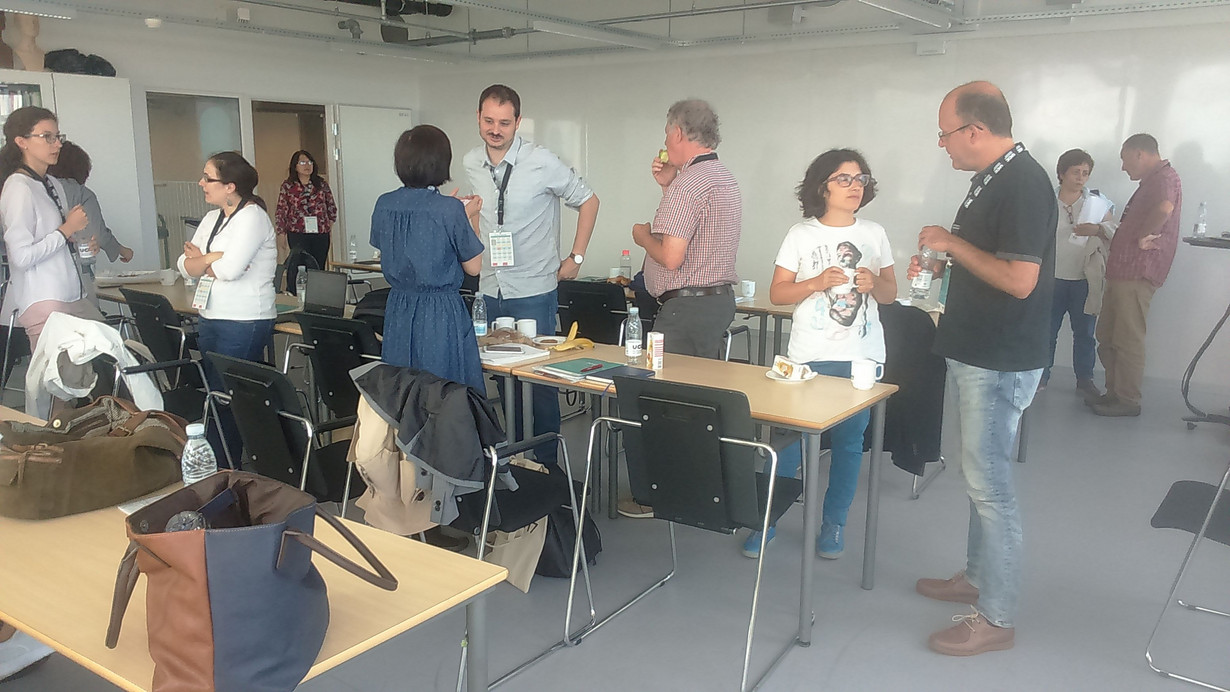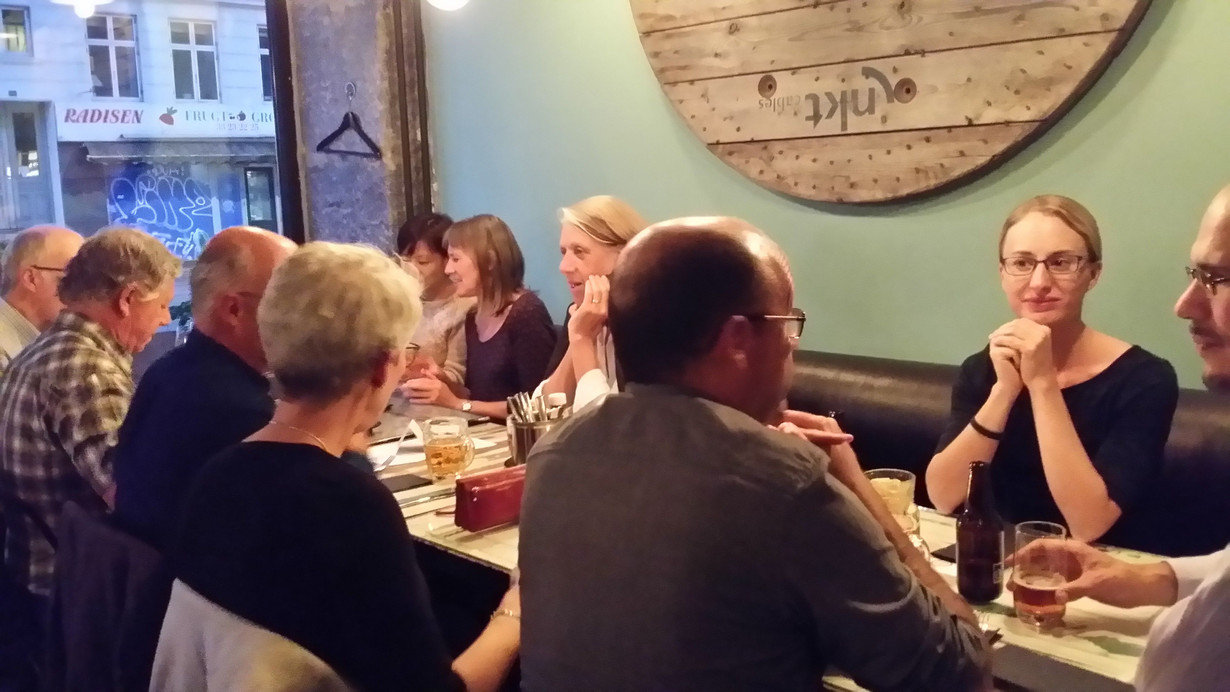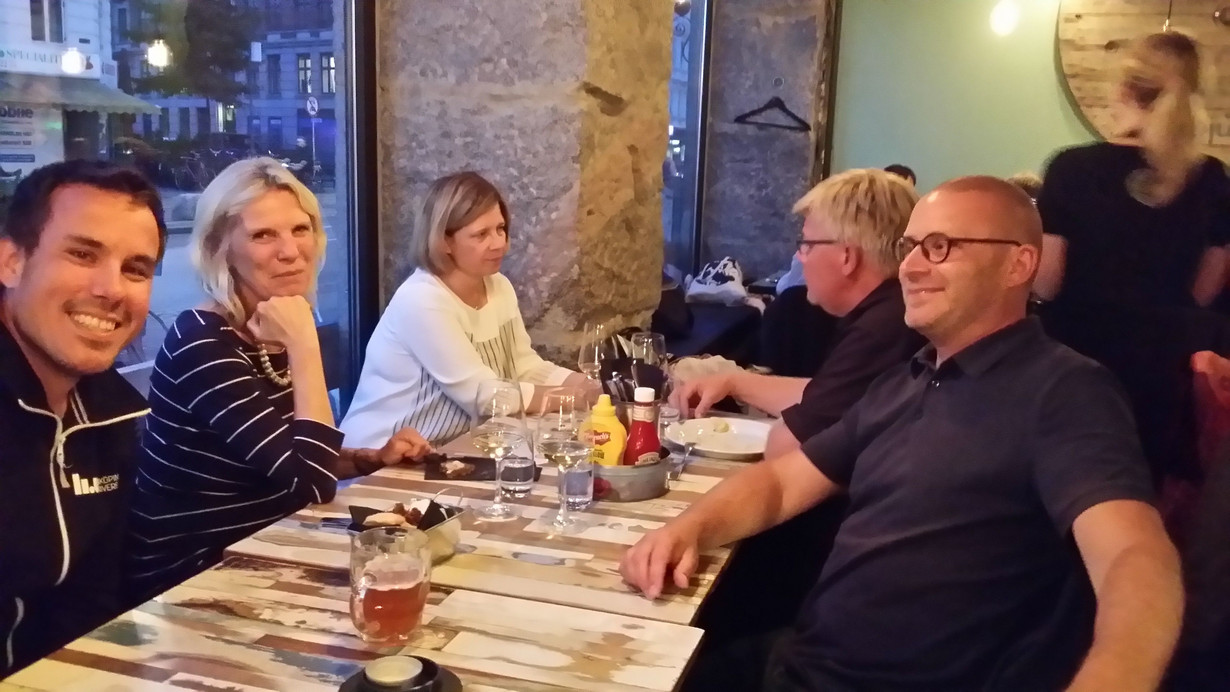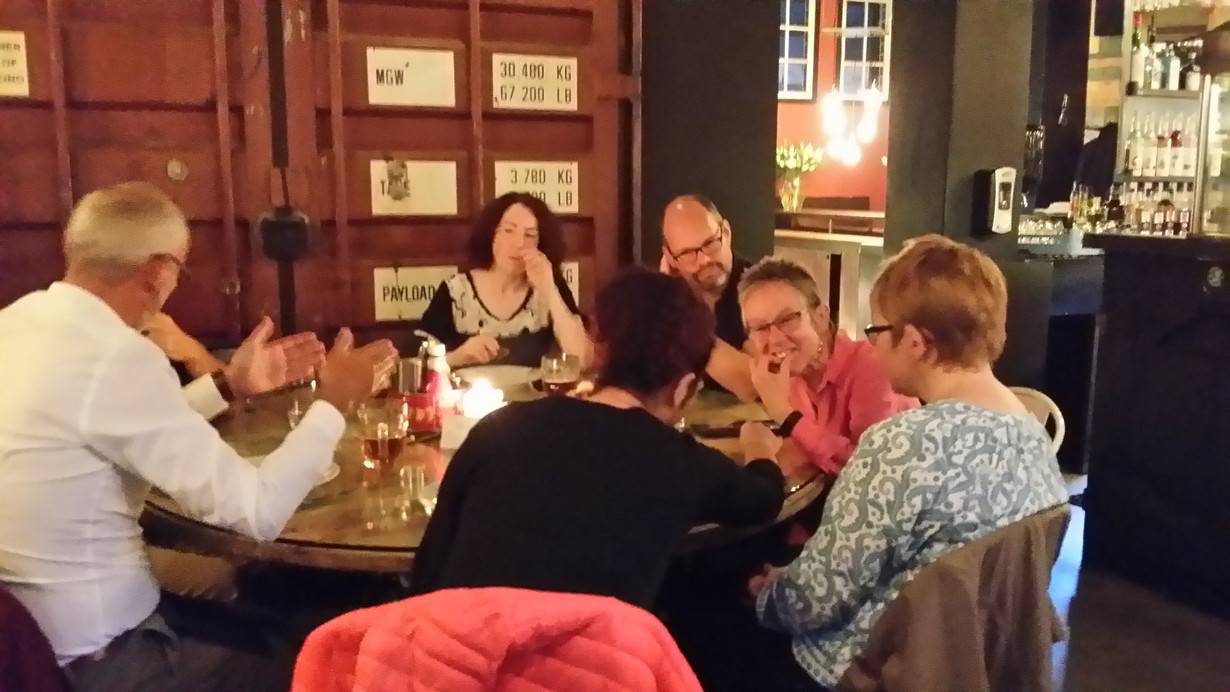Annual Report 2017, Copenhagen
ECER 2017 in Copenhagen was well prepared, well attended and very successful for our Network. The Network continues to attract large numbers of European researchers, the majority of whom are now regular participants of ECER conferences and members of NW23, presenting their work year after year and strengthening with their contributions the presence of the critical social research traditions within the ECER conferences as a whole.
Concerning submissions of contributions, at the end of the first reviewing round there were 145 submissions in total of which 17 were rejected and 8 were redirected to alternative networks. Following the second reviewing round, 12 submissions were redirected to NW23 four of which were rejected. The final conference programme included 104 papers, 14 symposia and 2 posters, though 13 papers were withdrawn after planning as well as 1 poster.
The number of sessions including the NW meeting that took place was 57.
The paper sessions were organised around themes such as:
- Policies and practices of performativity and assessment
- Policies and practices of evaluation of quality in Education
- Accountability, (in)equality and social justice
- Policies for inclusive and democratic education
- New modes of governing HE and their effects
- Privatizations in education
- Marketisation policies and their effects on staff and students
- Policy reforms and the regulation of teachers and their work
- Curriculum policy reforms and their implications
- European/global citizenship education policies & practices
- Governing through networks
The symposia covered themes such as:
- The politics of school knowledge
- Education privatization
- Policy actors from European edges
- Policy Scholarship
- Standardising education policy and practice
- Minority Education
In addition, two joint paper sessions took place: one with NW 13 (Philosophy of Education) on ‘Education Reforms, Democracy and Resistance’ and one on ‘Discourses and practices around Refugees, Migration, Interculturalism and Inclusion on Micro and Macro Levels’ with NW 20 (Research in Innovative Intercultural Learning Environments). Also, two joint symposia sessions: One on ‘Education Leadership for curriculum change’ with NW 26 (Educational Leadership) and one on ‘Unpacking the many meanings of justice in education: Analysing justice from multiple perspectives’ with NW 07 (Social Justice and Intercultural Education) and NW27 (Didactics L& T). Furthermore, a joint round table was offered to our Network participants, on ‘The implications of “New Populism” for education and ethnography’, organised by NW 19 (Ethnography).
Sessions were well attended, with most sessions attracting 20-25 delegates. Besides the efforts of presenters themselves, the quality of the experience was partly due to the excellent work done by the reviewers of the Network whose names appear on the EERA Network’s website, as well as by the chairing persons (mobilised mostly from the reviewers’ list). The venue was excellent, with very good facilities. There was plenty of space for the sessions, and very good spaces for people to meet during breaks. Participants reported that the quality of the sessions was very high and that the Keynotes and Plenary Sessions of the EERA conference as a whole were well attended and very satisfactory, enriching the experience of participating in ECER 2017, Copenhagen, for everyone.
Among the on-going issues discussed by participants in the Network Meetings in Budapest (ECER2015) and Dublin (ECER2016) there were the quality of reviewing of papers submitted for ECER conferences, the deepening of understanding of the European dimension with reference to critical education policy research, collaborations among members of the Network, and attracting to the Network and supporting early career researchers, especially among those attending the ECER pre-conferences. Furthermore, participants to past Network Meetings had evaluated positively the cooperation of our Network with other EERA Networks, encouraging conveners to promote such cooperations.
In the Academic year 2016-2017 conveners focused their attention in particular to the following issues:
First, ensuring the smooth transition in the coordination of the Network, by designating Peter Kelly, chosen the previous year as one of the new conveners, as the new link-convener of the network from September on-words. During the year between the two conferences Peter worked closely with the up to now link convener, Anna Tsatsaroni, and so he is absolutely prepared for the role of the co-ordinator.
Second, we continued our efforts to generate discussions with other Networks, which have similar research interests or address similar topics from different perspectives, through organising joint symposia or paper sessions. These were submitted to our Network with the suggestion to be presented jointly with another Network or they were agreed afterwards among Link-conveners of other Networks.
Third, we were very pleased to see that many colleagues continue to subscribe to the mailing list on the EERA NW23 website. The list is supported by Anne Larson, co-convener of the NW. Furthermore, there has been better use of the mailing list facility not only from the side of conveners but also from those inside and outside the Network that sent information around for dissemination. We would like to see this medium of communication to be used more broadly and to help in providing continuity to the Network for the periods between the ECER conferences.
Furthermore, thanks to conveners Palle Rasmussen and Anne Larson, a Network gathering/social event was organised during the ECER2017 conference, following the very successful social event in Dublin the previous year. This took place on Wednesday evening, 23 August. It was highly appreciated by many delegates, and conveners decided to repeat it next year in Bolzano.
Finally, we should mention with pleasure that the EERA Council approved our nomination of Jenny Ozga, Emeritus Professor at the University of Oxford and one of the founders of the NW23, as honorary member.
